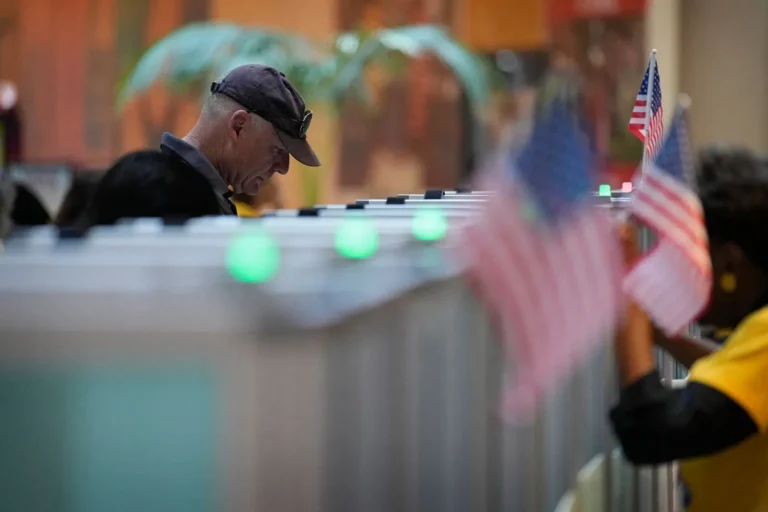Conservative Supreme Court Justice Clarence Thomas questioned Jack Smith’s authority as special counsel in his concurring opinion on the high court’s presidential immunity ruling.
The Supreme Court on Monday ruled 6-3 that Trump has absolute immunity for his core Constitutional powers.
Former presidents are entitled to at least a presumption of immunity for their official acts.
The Supreme Court ruled there is no immunity for unofficial acts.
Jack Smith’s DC case against Trump will be delayed again as it bounces back down to the lower court to Judge Tanya Chutkan.
Earlier this year the US Supreme Court agreed to hear Trump’s presidential immunity claim in Special Counsel Jack Smith’s January 6 case in Washington, DC.
Trump’s lawyers argued that Trump is immune from federal prosecution for alleged ‘crimes’ committed while he served as US President.
“In 234 years of American history, no president ever faced criminal prosecution for his official acts. Until 19 days ago, no court had ever addressed whether immunity from such prosecution exists,” Trump’s lawyers wrote in last month’s filing, according to CBS News. “To this day, no appellate court has addressed it. The question stands among the most complex, intricate, and momentous issues that this Court will be called on to decide.”
The Supreme Court ruled in Trump’s favor which means Jack Smith’s January 6 case in DC is effectively delayed.
Clarence Thomas went off on Jack Smith in his concurring opinion and questioned his authority as a special counsel.
President Trump is separately arguing that Jack Smith’s appointment was unlawful in the classified documents case playing out in a Florida court.
Clarence Thomas questioned Jack Smith’s authority because he was a private citizen when he was tapped as a special prosecutor.
“I write separately to highlight another way in which this prosecution may violate our constitutional structure. In this case, the Attorney General purported to appoint a private citizen as Special Counsel to prosecute a former President on behalf of the United States. But, I am not sure that any office for the Special Counsel has been “established by Law,” as the Constitution requires. Art. II, §2, cl. 2. By requiring that Congress create federal offices “by Law,” the Constitution imposes an important check against the President — he cannot create offices at his pleasure. If there is no law establishing the office that the Special Counsel occupies, then he cannot proceed with this prosecution. A private citizen cannot criminally prosecute anyone, let alone a former President,” Clarence Thomas said.
Clarence Thomas argued that no other former US President has been prosecuted for official acts despite numerous past Presidents taking actions that would argue constitutes crimes.
“No former President has faced criminal prosecution for his acts while in office in the more than 200 years since the founding of our country. And, that is so despite numerous past Presidents taking actions that many would argue constitute crimes. If this unprecedented prosecution is to proceed, it must be conducted by someone duly authorized to do so by the American people. The lower courts should thus answer these essential questions concerning the Special Counsel’s appointment before proceeding,” Clarence Thomas wrote.
Thomas also argued that Jack Smith is not senate confirmed (Trump’s lawyers are also using this argument before Judge Cannon).
“The Constitution sets forth how an office may be created and how it may be filled. The Appointments Clause provides: “[The President] shall nominate, and by and with the Advice and Consent of the Senate, shall appoint Ambassadors, other public Ministers and Consuls, Judges of the supreme Court, and all other Officers of the United States, whose Appointments are not herein otherwise provided for, and which shall be established by Law: but the Congress may by Law vest the Appointment of such inferior Officers, as they think proper, in the President alone, in the Courts of Law, or in the Heads of Department.” Art. II, §2, cl. 2. The constitutional process for filling an office is plain from this text. The default manner for appointing “Officers of the United States” is nomination by the President and confirmation by the Senate. Ibid. “But the Clause provides a limited exception for the appointment of inferior officers: Congress may ‘by Law’ authorize” one of three specified actors “to appoint inferior officers without the advice and con-sent of the Senate.” NLRB v. SW General, Inc., 580 U. S. 288, 312 (2017) (THOMAS, J., concurring). As relevant here, a “Hea[d] of Department”—such as the Attorney General—is one such actor that Congress may authorize “by Law” to appoint inferior officers without senatorial confirmation. Art. II, §2, cl. 2.
Thomas once again reiterated that a special prosecutor must be senate confirmed.
“Before the President or a Department Head can appoint any officer, however, the Constitution requires that the underlying office be “established by Law.”1 The Constitution itself creates some offices, most obviously that of the President and Vice President. See §1. Although the Constitution contemplates that there will be “other Officers of the United States, whose Appointments are not herein otherwise provided for,” it clearly requires that those offices “shall be established by Law.” §2, cl. 2. And, “established by law” refers to an office that Congress creates “by statute.” Lucia v. SEC, 585 U. S. 237, 254 (2018) (THOMAS, J., concurring); see also United States v. Maurice, 26 F. Cas. 1211, 1213 (No. 15,747) (CC Va. 1823) (Marshall, C. J.).”



